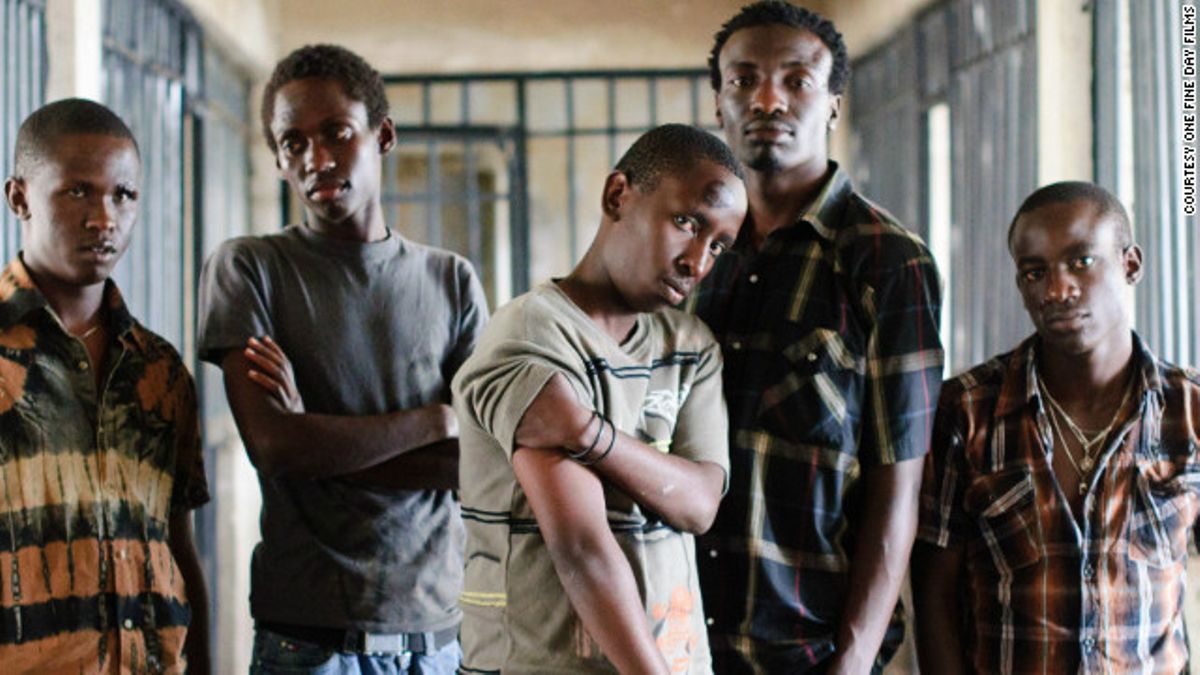Kenyan Neorealism
Nairobi Half Life is a smart, take-no-prisoners action movie that makes us to wrestle with the neoliberal city.

A still from "Nairobi Half Life."
The American film critic J. Hoberman once said Vittorio De Sica’s “Bicycle Thieves” is “the most universally praised movie produced anywhere on planet Earth.” The 1948 Italian neorealist film won an Oscar seven years before the Academy even had a category for foreign language films. It has also been called the apogee of the neorealist struggle for authenticity and political engagement in cinema. It takes a certain amount of ambition to adapt and respond to such a film. Enter David Tosh Gitonga, who co-wrote and directed the wildly successful Nairobi Half Life.
Nairobi Half Life tells the story of a young man who is inspired to leave his parents’ unhappy home in a village to make it big as an actor in Nairobi after he secures an interview with a national traveling theater troupe. But his big break becomes less certain when he is mugged on his way into the city. With no money and nowhere to go, Mwas is picked up by corrupt Nairobi police and held as a thief. His ambition as an actor and the ambitions of others twist around each other as he reaches deeper into the criminal economy of the city.
Bicycle Thieves doesn’t have so many competing plot lines.
De Sica said that he wanted to “reintroduce the dramatic into quotidian situations, the marvelous in a little news item… considered by most people throwaway material.” His movie followed a man and his young son across Rome on one desperate attempt to retrieve a stolen bicycle, along with the social mobility, respectability, and dignity it promises.
While Nairobi Half Life discards the episodic distillation and emotional clarity of Bicycle Thieves, it develops its own critical edge. Its bifurcated plots make us doubt the honesty and spontaneity of our character, while the increasingly absurdist stakes of the protagonist’s double life draw out a certain ambivalence towards the theater of resistance which peddles political awareness but studiously ignore the material conditions of the poor. Hypocrisy and cynical excitement flourish where anything that can be moved can be stolen. But like Bicycle Thieves, Nairobi Half Life does more than respond to our economic conditions. From the much-discussed “gay kissing scene” to the underdeveloped, almost caricatured, poor-girl-prostitute who makes her own decisions while she is tied to a leash, there is a lot to unpack.
Nairobi Half Life is a smart, take-no-prisoners action movie that makes us to wrestle with the neoliberal city. It played last night the New York African Film Festival and will be shown again on Sunday April 7th at 8 pm so that we can talk about it some more.



















